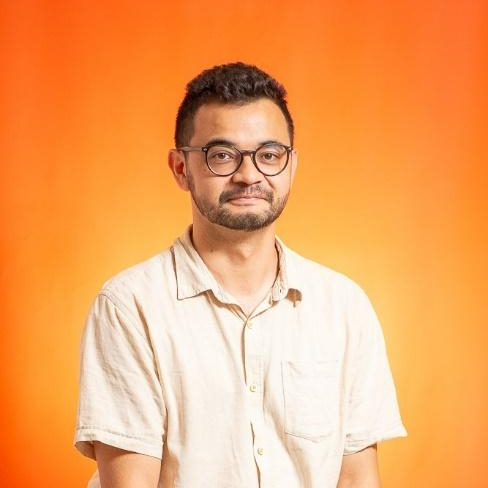
Thiago Haruo Santos is a research coordinator at the São Paulo State Immigration Museum and the Coffee Museum. A PhD candidate in Social Anthropology at University of Campinas (UNICAMP), he has studied at institutions in Argentina (Universidad Nacional de San Martín), Northern Ireland (Queen’s University Belfast), and Spain (Universidad de Salamanca). He co-curated the 2024 exhibition Move! Climate and Displacements and co-founded the Invisible Histories Working Group, an intersectoral initiative advocating anti-racist museological actions. A returned migrant, he lived in Japan for 15 years as the son of Brazilian factory workers, an experience that shaped his career and activism. Since 2009, he has worked on migration issues. He also led the São Paulo Immigration Museum’s participation in the Correcting the Record project (ICSC), dedicating efforts to collaborate to preserving the archives of quilombola communities in São Paulo and documenting their resistance to forced displacement.
In recent years, migration museums have strived to make a difference in a context where migration itself has become the target of attacks and exclusionary discourses. Their actions have shifted from migration as a museological object approach to the development of initiatives in collaboration with these communities. However, this presentation will argue that such efforts remain insufficient when museums engage with concepts such as race, xenophobia, ethnicity, displacement, and migration — ideas that span different historical periods and are deeply embedded in the construction of national narratives. Drawing from projects and experiences of the São Paulo State Immigration Museum, this presentation proposes that the key to addressing dynamics of violence and colonial domination lies in connecting past and present experiences of human mobility. Thus, museums that engage with migration are called upon to take on the challenge of articulating with perspectives that have been kept in invisibility, seeking new forms of historical connections and recognizing that these are issues that are at the heart of contemporary crises.
In 2022, the São Paulo State Immigration Museum and five other sites of conscience were invited by the International Coalition of Sites of Conscience (ICSC) to participate in the "Correcting the Record" project. This pilot global initiative aimed to develop a methodology for recalibrating institutional practices, curatorial approaches, and collections to amplify marginalized voices and build more inclusive and equitable public narratives, mitigating discrimination and social exclusion. Alongside organizations from Africa, Asia, and the Caribbean, the Immigration Museum followed four key phases — "Assessing the Gaps," "Defining the Gaps to Be Addressed," "Filling the Gaps," and "Ensuring the Gaps Are Filled" — engaging with local partners to rethink and transform institutional narratives and practices. The museum focused on the invisible histories of Indigenous and Black peoples in Brazil, leading to the development of new oral history projects and the creation of methodologies to support community collections. In this workshop, participants will explore the tools and strategies developed throughout the project and discuss how museums and cultural institutions can collaborate with local communities to address historical erasures and promote more representative narratives.